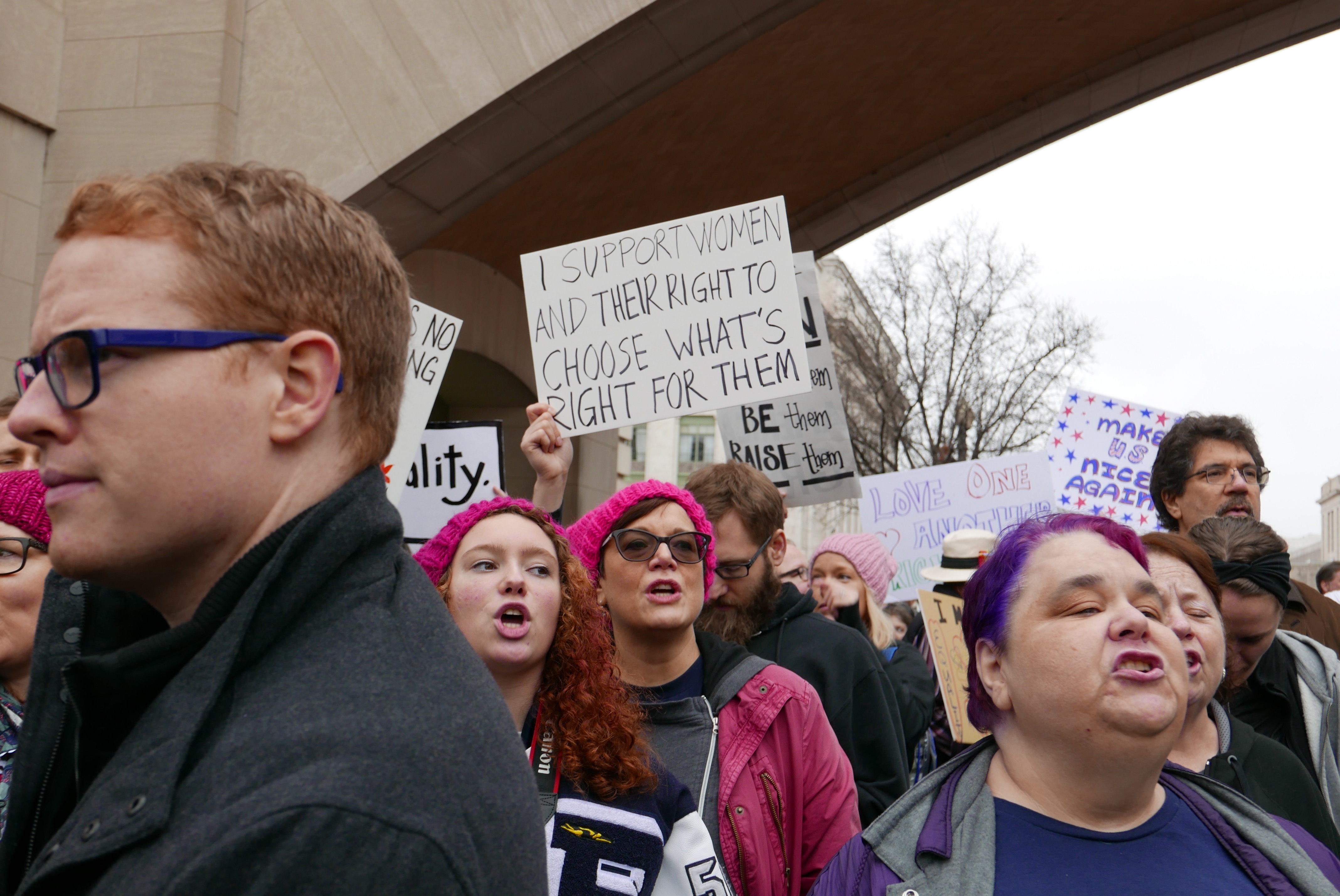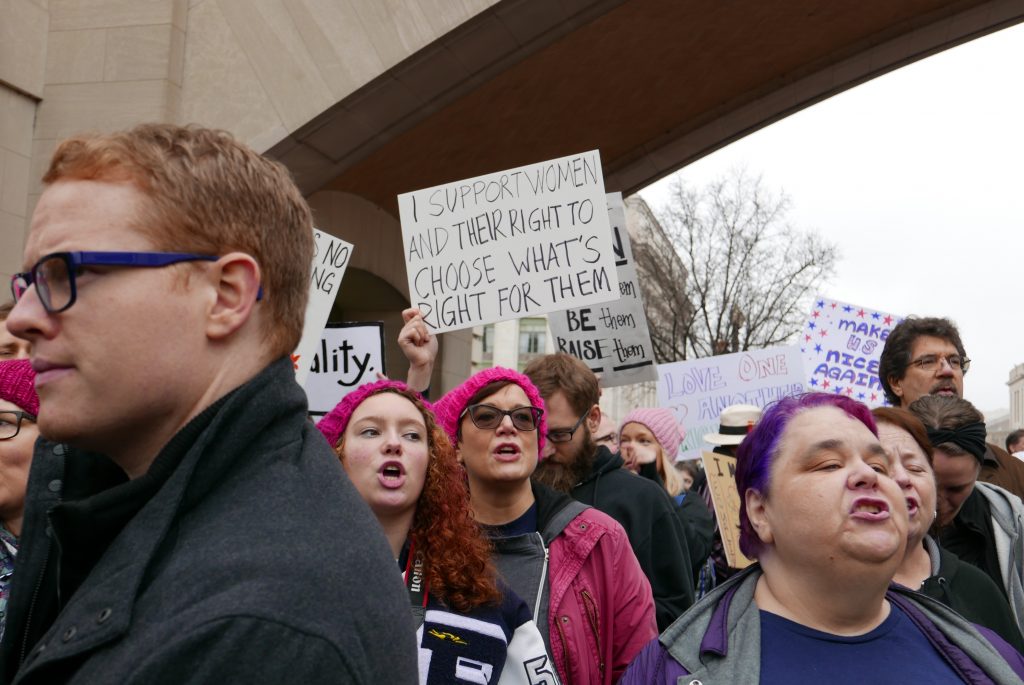

Despite the name of the march that brought together hundreds of thousands of people to the nation’s capital being the Women’s March on Washington, thousands of men participated in the movement to stand in solidarity with the opposite gender.
The march designed to “send a bold message” to the new administration that “women’s rights are human rights” began less than 24 hours after President Donald Trump took his Oath of Office. In the process, the streets around the National Mall and Capitol were inundated with people from around the nation holding signs with feminist messages including “Our bodies, our minds, our power” and “Keep your laws off my p*ssy.”
Among those holding signs and chanting anti-Trump messages was Alex Voynow, 23, who attributed his participation in the Women’s March to a responsibility he felt as a man for women’s issues. According to Voynow, men should take responsibility for the hostile and violent environment women often encounter in society.
“Most of these [issues] stem from men. I feel very strongly about drawing a sense of personal and collective gender responsibility for fixing those things and doing right for society and for the world,” he said.
Voynow, a New Jersey resident who drove to D.C. specifically to protest the new administration, was also involved in the anti-Trump demonstrations on Jan. 20, Trump’s day of installation as the 45th president of the United States. He said though the Women’s March was a much more positive and supportive environment than the demonstrations on the day of the inauguration, he valued the process of taking part in both.
“Trump may or may not listen and the patriarchy may or may not stay in tact but power is being built among people, people are sharing, people are learning and seeing new things and talking to people,” he said. “That kind of coming together and collective is powerful.”
Throughout his presidential campaign, Trump garnered negative attention from various Washington insiders and the public for comments made about women some deemed as “sexist” and “misogynistic.” In October 2016, a video tape of a lewd conversation between Trump and former Access Hollywood host Billy Bush in which Trump insinuates that women would allow him to “grab them by the p*ssy” because of his social status was leaked by The Washington Post.
For Sam Judkis, 25, it is comments like these that motivated him to travel from New Jersey to be part of the movement for women’s equal rights. Judkis said the 2016 election results left him feeling “embarrassed and disgraced” that U.S. citizens would vote for a person who attacked women’s rights. He said he thought the march would provide an opportunity to have some effect on Trump.
“There’s a chance in two years to put some major obstacles in his way. At least, he does seem to listen to what it is people are saying about him even if it’s negative,” Judkis said. “I’m sure he’s really mad right now at everything that’s going on and that’s going to affect him, one way or another. I’m sure he’s thinking about it right now.”
Participants of the demonstration arrived and marched in clusters within the sea of pink cat-shaped winter hats. Some partook in the event with their friends, co-workers, children and some at the request of their spouses, including Brian Henry, 64.
“The woman I love asked me to join her in demonstrating our commitment to values that we share,” he said.
Henry, a Pennsylvania resident, said though the process to arrive at the location of the demonstration took a total of five hours, it would be worth it because of the impact they were going to make.
“We are demonstrating by our presence, our numbers, our motivation and the organization of the march organizers,” he said. “We are organized and prepared to offer credible resistance to the changes proposed by this administration and this legislation.”
Marcus Lim contributed reporting.






